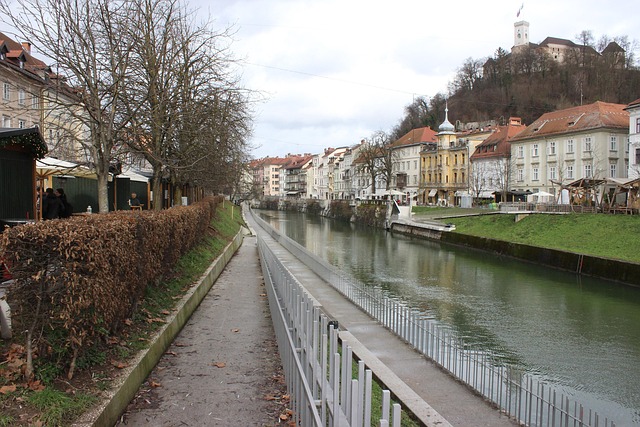Karachi's Air Quality Index (AQI) is a vital tool for protecting public health from urban air pollution. High levels of pollutants like PM2.5 and PM10 on roads like Khalid Bin Walid Road stem from traffic congestion, construction, industrial activities, and fossil fuel burning. Regular AQI monitoring enables authorities to identify problem areas, implement anti-pollution measures, and raise awareness among residents, aiming for a healthier environment in this densely populated city. The situation highlights the need for effective strategies targeting air quality improvement in Karachi.
Karachi, Pakistan’s bustling metropolis, faces a growing challenge: air pollution. This article explores the intricate relationship between urban life and airborne contaminants, focusing on the Khalid Bin Walid Road as a case study. We delve into the Air Quality Index (AQI), a critical tool for understanding and monitoring Karachi’s air health. By analyzing specific hotspots like Khalid Bin Walid Road, we aim to highlight strategies for improving air quality and fostering a more sustainable environment in Pakistan’s vibrant city.
- Understanding the Air Quality Index in Karachi
- Khalid Bin Walid Road: A Case Study on Air Pollution and Its Impact
Understanding the Air Quality Index in Karachi

In Karachi, understanding the Air Quality Index (AQI) is paramount for residents and authorities alike to ensure public health and safety. The AQI is a standard measurement that provides insights into the level of air pollution in an area. It categorizes air quality based on five primary pollutants: sulfur dioxide, nitrogen oxides, ozone, carbon monoxide, and particulate matter (PM2.5 and PM10). Each pollutant has specific health implications, with higher concentrations leading to respiratory issues, cardiovascular problems, and other adverse effects.
Karachi, as a bustling metropolis, faces unique air quality challenges due to factors such as vehicle emissions, industrial activities, construction projects, and burning of fossil fuels. The AQI helps in gauging these challenges and taking proactive measures. By regularly monitoring the AQI along major roads like Khalid Bin Walid Road, authorities can identify problem areas, implement pollution control measures, and raise public awareness about air quality issues. This collaborative effort ensures a healthier environment for the diverse folks living in Karachi.
Khalid Bin Walid Road: A Case Study on Air Pollution and Its Impact

Khalid Bin Walid Road, a bustling thoroughfare in Karachi, serves as an intriguing case study for understanding air pollution and its profound impact on urban environments. This road, much like many other arterial routes in the city, is characterized by heavy traffic congestion, contributing significantly to elevated levels of air pollutants. The dense population and rapid urbanization around Khalid Bin Walid Road exacerbate the issue, leading to a complex interplay of factors that affect air quality.
Regular monitoring has revealed concerning trends, with particulate matter (PM2.5 and PM10) often surpassing safe limits. Vehicle emissions, construction activities, and industrial operations in the vicinity are primary culprits. The health implications are severe, linked to respiratory issues, cardiovascular diseases, and even premature deaths among residents living close to this road. This case highlights the urgent need for implementing targeted strategies to combat air pollution in Karachi, focusing on traffic management, green initiatives, and stringent emission controls.
The air quality index (AQI) serves as a crucial tool for understanding and addressing air pollution in Karachi. In the context of Khalid Bin Walid Road, this study highlights the significant impact of air pollutants on the local environment and public health. By analyzing historical data and identifying key sources, we can navigate towards sustainable solutions to improve air quality. It is imperative that residents, businesses, and authorities collaborate to implement measures that mitigate pollution levels, ensuring a healthier future for the bustling metropolis of Karachi.








Leave a Reply
You must be logged in to post a comment.